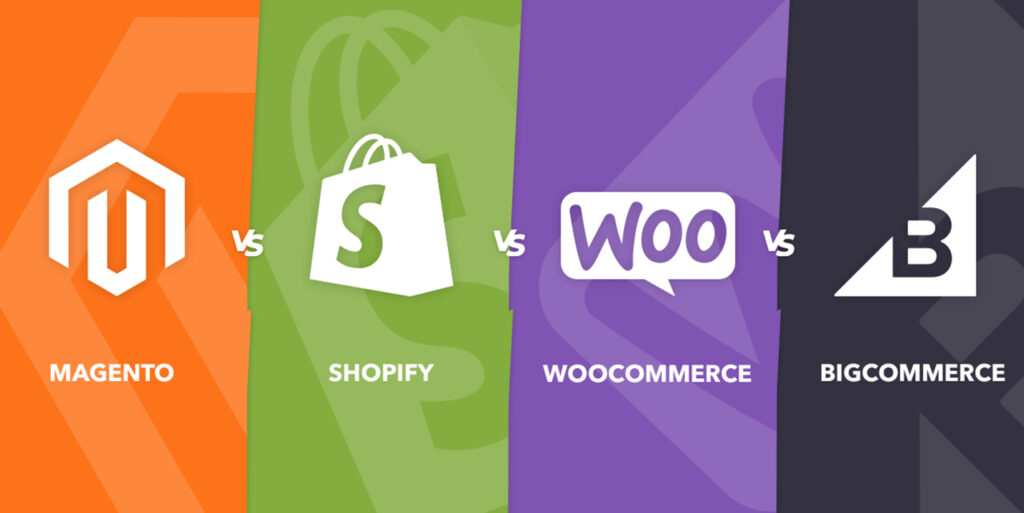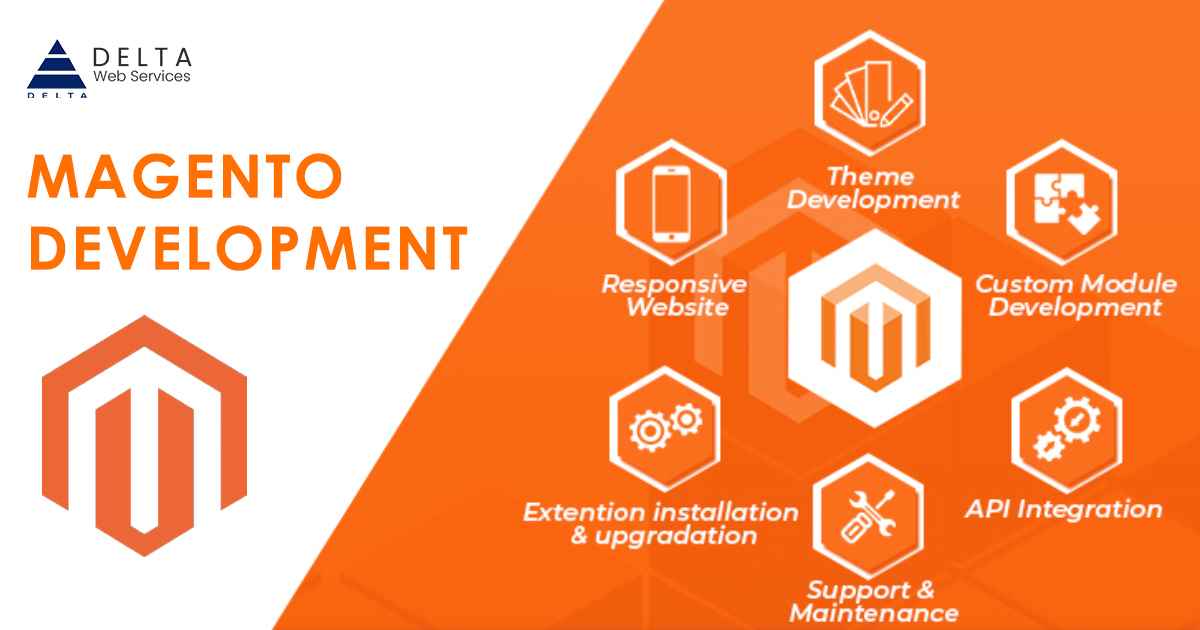E-commerce has become a popular way of conducting business for many entrepreneurs today. An online store can become a successful business venture with the correct platform. Magento is one of the most well-liked e-commerce platforms. Its adaptability, scalability, and extensive feature set make it a top choice for many online store owners.
The advantages of using Magento as an e-commerce platform, its various versions, how to customize your store, extensions, and plugins, advice for SEO-optimizing your online store, best practices for maintenance and security, support and resources for Magento, are all covered in this article.
Why Magento is the Ideal E-Commerce Platform
When it comes to e-commerce, there are many platforms to choose from. However, Magento is the best e-commerce platform due to its robust features and flexibility. Further, it is an open-source platform allowing users to customize their online store to meet their needs. This flexibility means it can be used by businesses of all sizes, from small startups to large corporations.
There are a variety of platforms available for e-commerce. However, because of its powerful features and adaptability, Magento stands out as the best e-commerce platform. The open-source Magento platform enables users to modify their online store to suit their requirements. Due to its adaptability, it may be utilized by companies of different sizes, from little startups to enormous conglomerates.
The capacity to interact with other systems is another advantage of utilizing Magento. Along with prominent marketing automation platforms like Hubspot and Mailchimp, this also provides connectivity with well-known content management systems like WordPress and Drupal. Because of this, proprietors of online stores and Online shopping website designing company can easily manage both their marketing initiatives and website content in one location.
Benefits and Features
Its numerous features and advantages make Magento the greatest e-commerce platform. These qualities consist of the following:
- User-friendly interface: Users may easily navigate their online store using its user-friendly interface.
- Themes that can be customized: It also has a large selection of themes that can be customized, enabling users to design their look and feel for their online store.
- Mobile responsiveness: Online store owners may reach clients on any device, thanks to mobile responsiveness.
- SEO Friendly: Online store owners may quickly optimize their stores for search engines because of their SEO friendliness.
- Scalable: Magento may expand along with your business because it is scalable. As a result, online store owners can open a small store and increase it as their company expands.
Understanding the Different Versions
Magento’s platform is available in two separate iterations: Magento Open Source and Magento Commerce. Users of the free, open-source Magento Open Source platform can adapt their online store to suit their own requirements. The paid platform Magento Commerce provides extra features like sophisticated marketing tools, client segmentation, and targeted discounts.
Magento Commerce additionally provides a cloud-based solution, so online store owners are relieved of the responsibility of operating their servers. Additionally, Magento Commerce offers round-the-clock technical support, a helpful service for owners of online stores.
Other E-Commerce Platforms vs. Magento

Magento is not the only choice in terms of e-commerce systems. Shopify, WooCommerce, and BigCommerce are a few other well-liked e-commerce platforms. However, due to its adaptability and scalability, it stands out as the best e-commerce platform.
Popular e-commerce platform Shopify has a user-friendly interface and a selection of templates that may be customized. Online store owners may have fewer customization possibilities with Shopify because it is less flexible than Magento.
A free, open-source e-commerce plugin for WordPress is called WooCommerce. WooCommerce is a well-liked alternative for small enterprises, but its limited scalability might not be appropriate for larger businesses.
BigCommerce is a premium e-commerce platform with a range of capabilities, including themes that can be customized, mobile friendliness, and SEO optimization. BigCommerce might not be as adaptable as Magento. Therefore online store owners’ customization possibilities might be constrained.
How to Personalise an E-commerce Store
One advantage of choosing Magento as an e-commerce platform is the flexibility in tailoring your online store to suit your particular requirements. Options for customization include:
- Themes that can be customized: It offers a large selection of themes that can be customized, enabling online store owners to design a distinctive look and feel for their establishment.
- Modules that can be customized: Magento offers a variety of modules that can be modified to bring new functionality to an online store.
- Checkout process customization: Furthermore,it provides a process that online store owners can modify to suit their particular requirements.
Extensions and Plugins
To improve the operation of your online business, it provides a large selection of plugins and extensions. These add-ons and extensions consist of the following:
- SEO plugins: Magento offers a selection of SEO plugins to make your online store more search engine friendly.
- Plugins for shipping: You can personalize your delivery options using one of the many plugins.
- Plugins for payments: You can personalize your payment options by using one of the many payment plugins offers.
Guidelines for SEO Optimisation

For your online store to receive visitors, your e-commerce store must be optimized for SEO. Here are some pointers for making your Magento store SEO-friendly:
- Optimize product descriptions: Use relevant keywords in your product descriptions to optimize them and raise your search engine rankings.
- Optimize images: Use relevant keywords in the alt tags of your photographs to optimize them and raise your search engine rankings.
- Use meta tags: To increase your search engine ranks, use relevant meta tags, such as title tags and meta descriptions.
Best Practises for Security and Maintenance
Maintaining your Magento store’s security is essential for safeguarding your consumers and company. Best practices for Magento security and upkeep include:
- Update your Magento platform frequently: Keeping your Magento platform updated regularly can assist in avoiding security flaws.
- Use strong passwords: To prevent unauthorized access to your store, use strong passwords for each user account.
- Use SSL encryption: To protect the private information of your consumers, use SSL encryption.
Support and Resources
Online store owners can access several resources and help from Magento. These sources consist of the following:
- Documentation: Detailed documentation is provided by Magento to aid in the setup and management of online stores.
- Community forums have a sizable user base that may provide assistance and guidance.
- Technical help: Magento Commerce provides online store owners with round-the-clock technical support.
Using Magento to Its Full Potential
The best e-commerce platform is Magento because of its features, which are robust, flexible, and scalable. You may advance your online store by learning about the various Magento versions, customizing your Magento store, and optimizing your Magento store for SEO. Additionally, adhering to recommended Magento maintenance and security procedures can help safeguard your company and clients.
Online store owners can build a profitable online business with the help and tools provided by Magento. By following the tips and best practices in this article, eCommerce website development company businesses can unlock the full power of Magento and elevate their e-commerce experience to the next level.




